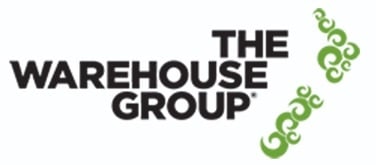
Do You Need Campaign Support?
How to break out of BUSINESS-AS-USUAL and deliver exceptional campaigns
Successful marketing campaigns all start with a great plan and even better management. Creating a message and delivering it in a way that lands takes a lot of work – but with the right tools, every business has the potential to run strong campaigns.
A common pain point for marketing teams is the volume and velocity of work. Marketers often have too much to do already to give appropriate time to improving and enhancing their existing strategies. And when the marketing department is too busy, teams that are brilliant at creating campaigns will only have the chance to do so if they let their current tasks fall by the wayside.
That’s where a campaign support model can help. Whether the need is a fresh campaign plan, campaign management, automation, or just a way to change business as usual to free up time, bringing in an external support team is a viable means of promoting and strengthening desired marketing outcomes. A campaign support relationship can help companies leverage their teams, processes, and data – and get even better at what they do.
Four key areas of campaign support
Using data strategies and asking for help is an excellent opportunity to improve existing workflows and minimise guesswork in marketing campaigns. The four main pillars of campaign support surround getting data flows, processes, capacity, and optimisation right so businesses can successfully deliver customer-centric, data-driven campaigns.
 Data
Data
Targeting the right people is essential in marketing campaigns, meaning businesses need to know, and show they know, their customers. For example, the ability to see audience interactions with a company, including via the website, in-store, and call centres, is essential information for what customers are doing and how they feel about that business. Another beneficial data strategy is segmenting customers, which enables a better understanding of an organisation’s current customer base.
Different businesses have different data capabilities, platforms, structures, and quantities. Having clean, accessible data (for instance, with a Datamart, which centralises various databases in one place) gives organisations a basis to deliver personalised, targeted campaigns.
Acquiring data and getting it to flow can be complex and time-consuming – but the pay-off can be huge, and there is no substitute for having evidence on your side. Whether the goal is to maintain loyal customers or bring back lost or lapsed customers, using data makes campaigns less of a guessing game, thereby significantly increasing the chances of success.
 Processes
Processes
Any marketer who feels too busy focusing on the details to pay attention to efficiency and improvement is not alone. Many businesses do not have the capacity to step back and objectively review the “how” of what they do. Yet, for any business to reach its goals, it needs to have well-defined steps to achieve them.
The only way to improve as a team is to take the time to examine the current processes and find out what works and what doesn’t. Bringing in a support team when and where needed helps remove the noise and show things from a different angle, allowing marketing and IT teams to do what they do better.
 Capacity
Capacity
Asking a team already working at capacity to build a campaign on top of general day-to-day business is a challenging expectation. It’s essential to assess the team’s current workload and determine whether its members have the resources to take on additional tasks in order to prevent problems like burnout, errors, and lower productivity.
An excellent way for organisations to manage variations in workload is to have a plan in place where they can call in support as an “extended bench.” That way, their marketing and IT teams’ jobs stay consistent and manageable, ensuring nobody internally is left with too much or too little to do. The work of the external support team could look like either taking over the business-as-usual, developing new processes or simply automating to free up capacity.
 Optimisation
Optimisation
In a constantly changing market, there are always ways to improve systems, processes, and campaign execution. Each new campaign will bring new potential to get better, whether through data flows, segments, timings, personalisation or reporting. Making the most of these opportunities is the best way to continually enhance and refine campaigns and maximise success.
The process of optimising campaigns requires a test-and-learn focus. It’s critical for getting the outcomes businesses want, but it takes time and team capabilities to maintain.
Using campaign support services to assist with ongoing improvements enables the changes that drive results. For example, Datamine’s TestLab approach facilitates fast, continuous testing that creates a robust and flexible campaign process. It implements a scalable framework that’s easy to understand at the heart of businesses’ direct marketing activities.
Together, optimising and testing deliver enhancements quickly, so they are visible to the right audience.
Unlock the potential of your marketing teams
Datamine offers a broad range of platform-agnostic support services for businesses looking to drive performance, efficiency, and value in their marketing campaigns. What this looks like depends on the needs of each organisation, ranging across campaign building, strategy, and tech support. We can give:
- One-off support, which usually entails a deep-dive systems review, provides organisations with enough knowledge and skills to build their campaigns themselves and
- Ongoing support, which accounts for the ebbs and flows of marketing workloads and builds a continuous relationship where we help businesses consistently deliver better and better campaigns.
Investing in better data, processes, capacity, and optimisation concurrently will generate a better result than separating them. All four pillars are essential to creating more robust, effective marketing campaigns. Datamine is here to assist businesses in getting the most value out of their data, streamlining marketing processes, and freeing up time so marketers can focus on what they do best.
To learn more about using a data-driven approach to campaigns, download the Datamine Guide to Marketing Automation. You can also follow the link below to fill out a short self-assessment and receive a personalised 2-page report for more insight on your Marketing Automation capabilities.















































